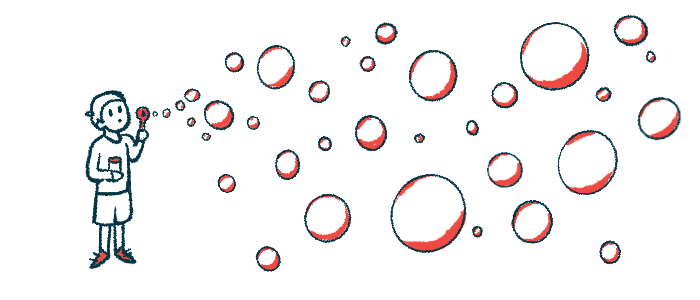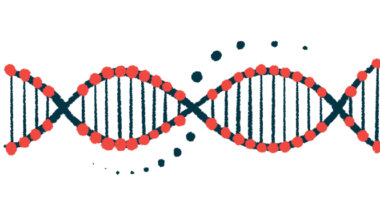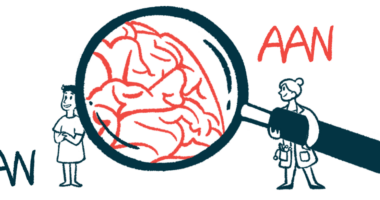Fear, sadness, distress affect SMA children more greatly, study says
Children with SMA also have more difficulty expressing their feelings

Young children with spinal muscular atrophy (SMA) feel more fearful and sad, and may have a harder time recovering from distress than children who are healthy or have other conditions, a small study in India has found.
These patients also seem to have more difficulty expressing their feelings or issues, internalizing problems like anxiety and depression.
The study, “Behavioral problems in infants and young children with spinal muscular atrophy and their siblings: A cross-sectional study,” was published in the European Journal of Paediatric Neurology.
Study assessed temperament of 35 infants and preschoolers with SMA
SMA is a genetic disease that leads to muscle weakness which makes movement more difficult with time. While the disease does not cause learning disabilities, school-age children and adolescents with SMA seem to experience higher levels of anxiety and depression. They may also feel more stressed and exhibit behavioral problems.
However, whether this also holds true for younger children is unclear.
To find out more, a team of researchers in North India examined the temperament of 35 infants and preschoolers, ages 3 months to 5 years, who had a diagnosis of SMA type 1, 2, or 3. These three types of SMA usually develop during infancy or early childhood.
The first symptoms of SMA appeared a mean 5.9 months after birth. At entry to the study, the children’s mean age was 21.4 months and none were under treatment for SMA.
Seven of the children were able to sit without support and three of them were able to stand and walk independently. The remaining were unable to sit unsupported and had poor head control. Three children received oxygen support at home whenever they developed an airway infection, and two others had to use a mechanical ventilator to help them breathe.
The researchers included 24 healthy siblings with a mean age of 38.6 months to serve as controls, as well as 24 healthy children recruited from an outpatient clinic who were matched in terms of age, gender, and socioeconomic factors to the healthy siblings.
There was also a control group of 15 children with nephrotic syndrome, a condition that causes the kidneys to leak large amounts of protein into urine. These patients were matched in age, sex, and socioeconomic status to children with SMA who fell in the age group of 2–5 years.
These results suggest that infants with SMA are likely to suffer from more fear, sadness, suffer more distress due to limitation, and have more difficulty being consoled as compared to healthy infants.
Infants with SMA scored higher on distress to limitation, fear, and sadness
To monitor for behavior and temperament, the researchers used the Infant Behavior Questionnaire-Revised in infants up to 1 year of age, and the parent-reported version of the Child Behavior Checklist to test preschoolers.
Results showed that infants with SMA scored significantly higher on distress to limitation, fear, and sadness than their healthy counterparts. They also scored significantly higher on falling reactivity and lower on soothability, two measures of how fast the children can recover from distress.
“These results suggest that infants with SMA are likely to suffer from more fear, sadness, suffer more distress due to limitation, and have more difficulty being consoled as compared to healthy infants,” the researchers wrote.
In measures of temperament, infants with SMA also scored significantly lower on surgency/extraversion (meaning a lower disposition to experience positive emotions and draw pleasure from social interactions) and higher on negative affectivity (a tendency to experience negative emotions).
Some behavioral abnormalities were also observed in preschoolers. In these older children, those with SMA scored significantly higher on internalizing problems — a difficulty coping with negative emotions or stressful situations — and stress than healthy controls or children with nephrotic syndrome. They also felt more emotionally reactive and anxious.
These findings suggest “that children with SMA are more likely to suffer from internalizing problems like anxiety and depression,” the researchers wrote.
SMA type and functional impairment were linked to behavioral challenges
Additional analyses found that both SMA type and the severity of functional impairment were linked to more behavioral challenges. In fact, SMA patients who could walk had no significant differences in internalizing problems and stress scores compared with their controls. These issues tended to be worse in patients who could not sit or walk.
“Even young children with SMA are more likely to suffer from anxiety, depression, fear, and stress,” the researchers wrote, adding that “children who are more severely affected showed worse scores on behavioral profiles.”
“Clinicians need to address these behavioral problems with the help of a multispecialty team to improve the health-related quality of life of these children,” they concluded.









